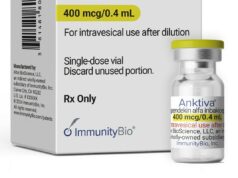Nines, a Palo Alto-based teleradiology startup, received FDA 510(k) clearance for a system that can detect and triage two serious conditions from CT scans. The company’s NinesAI system uses machine learning to identify potential cases of intercranial hemorrhage and mass effect, both of which are associated with strokes. The system then flags those cases for expedited review by radiologists. For both of these conditions, every hour counts toward a patient’s survival.
“This has been a long time coming. A lot of hard work went into it,” CEO David Stavens said in a phone interview. “We think that this technology is particularly important because we are seeing the demand in terms of studies growing much more quickly than the number of radiologists.”
In busy practices, where radiologists might have several cases in their queue, the extra help in identifying urgent cases can make a big difference. Nines claims radiologists can be notified of a potentially life-threatening finding about 15 seconds after the scan is complete.
Nines received 510(k) clearance to use its machine learning algorithms for the two conditions on April 21, according to the Food and Drug Administration. To gain approval, Nines had to demonstrate that its product is substantially equivalent to another approved device.
Stavens said Nines first began working on the algorithms when the company was founded two-and-a-half years ago. Stavens, the former CEO of education platform Udacity, started Nines with Dr. Alexander Kagen, radiology site chair for Mount Sinai West and Mount Sinai St. Luke’s Hospitals. The company closed a $16.5 million series A round in 2018.
Outside of its software development, Nines also operates a teleradiology practice. The company has 15 radiologists in-house, and contracts with hospitals to provide teleradiology services during times when demand in high. During the Covid-19 pandemic, radiologists have experienced a growing caseload, as chest CT scans have been an important tool in diagnosing the disease in sick patients.
“It is a unique time. Hospitals are being strained in new ways,” Stavens said. “Radiologists are being asked to participate in other areas of patient care beyond their usual jobs.”
Nines will deploy the two machine learning algorithms in its own practice, and will also offer them to its customers for in-house use. Stavens hinted at plans to seek approval for additional algorithms that the company is working on, but he didn’t share the specifics.
Photo credit: wigglestick, Getty Images








